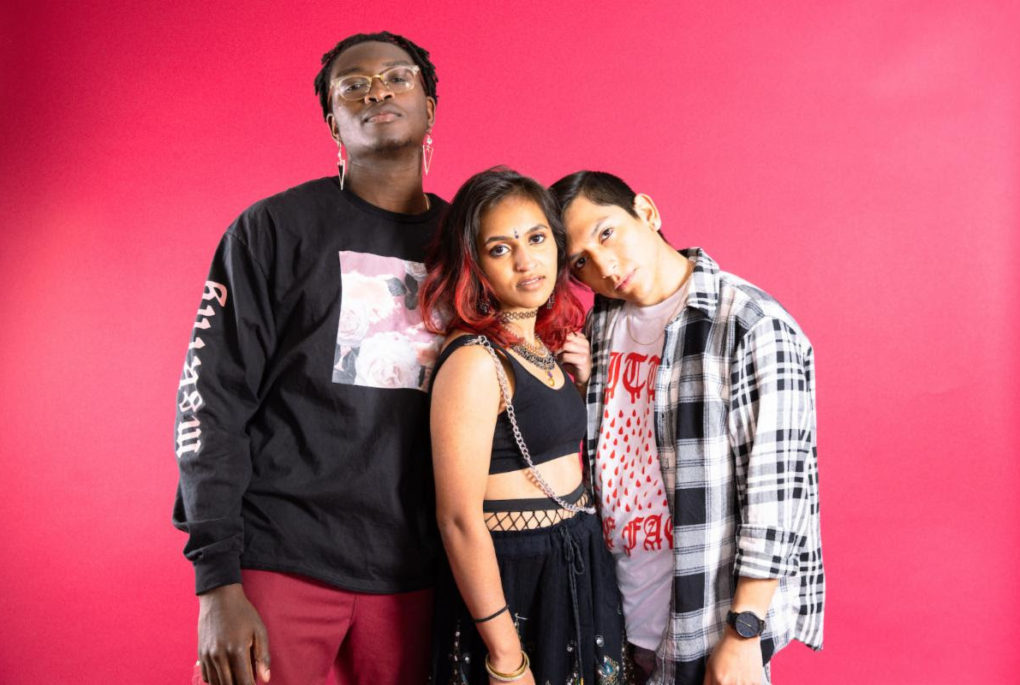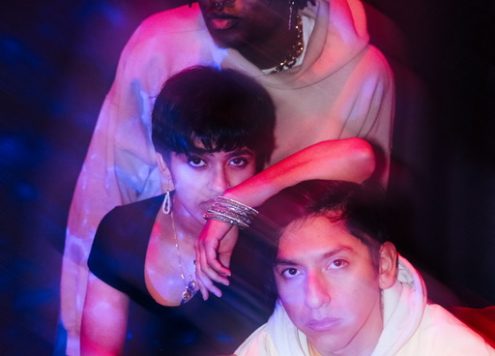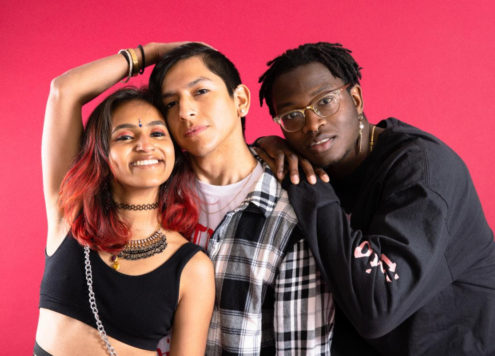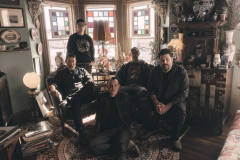Baltimore-based trio Pinkshift – Ashrita Kumar (vocals, they/them), Paul Vallejo (guitar, he/him), Myron Houngbedji (drums, he/him) – recently announced their long-awaited debut album, Love Me Forever, out October 21 via Hopeless Records. Following the release of the already critically acclaimed singles “nothing (in my head)” and ‘i’m not crying, you’re crying,” Pinkshift share a new track entitled “GET OUT.” A fitting single from a vehemently unapologetic punk band whose songs rail against prejudice and oppression while also examining the human condition, “GET OUT” is a snarling and anthemic track that blends metal riffs with punk vocals, and the band has dedicated to the Supreme Court recently during live shows.
“‘GET OUT’ is an anthem to be utilized to take space where it’s not inherently given to us,” explains Kumar. “It’s a blatant attack against the white supremacist and patriarchal colonizers of our bodies, homes, and ways of life, and it’s an expression of pure and unapologetic rage that stands in defense of our autonomy.”
Love Me Forever was a more concentrated effort, mostly written during the pandemic. “We were concerned this wouldn’t feel like an actual album,” admits Kumar, “but because we all worked on it together throughout this period of time, it feels really cohesive. It defines an era of our lives.” Adds Houngbedji, “with everything that’s going on – both in the world and in our own lives – it feels like it was a very transitional period that influenced what we were writing about. They all have similar themes.” It’s not just a no-holds-barred reflection of the state of the world today, however. It’s one delivered from a unique point of view within a music scene that’s predominantly white. It makes Love Me Forever all the more important.
“I feel like the biggest thing of us existing in this scene,” says Houngbedji, “is just for more people of color being able to see us – and if they had doubts about going into music or like occupying this kind of space because of what the scene is like, they’ll be like, ‘Oh, wait…’ We’ve had people of color come up to us after we played saying ‘You make me want to start my own band’ or ‘You made me feel more comfortable being there without being scrutinized.’ And I think that counts for something.”
Adds Kumar, “It’s cool seeing people at our shows who are like ‘I’m going to start wearing my traditional jewelry because fuck it!’ and I’m like ‘You should! It’s stylish, it’s cool, it makes you unique – be proud of it!’”
Photo Courtesy: Leigh Ann Rodgers












Social Media